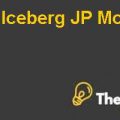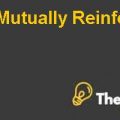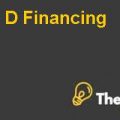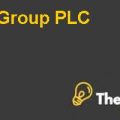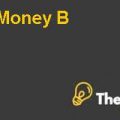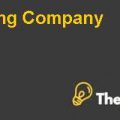
PROBLEM STATEMENT
AQR Capital Management has been able to develop a Hedge Fund called the DELTA Strategy; this strategy is a composition of portfolios that provides exposure of a total of nine major hedge funds. Even though Delta has outperformed the market, but David Kabiller, Head of Client Strategies and a Founding member of AQR is not satisfied with the performance of Delta, stating that when an innovative product shows a solid track record then it is always accompanied with explosive growth, which is not reflected in the Assets Under Management (AUM) of Deltas. Even though, Kabiller believes that Delta provides the added advantages, which no Hedge fund can provide at the moment that include: Low Cost, Low Risk with High Yield Investment portfolio that is managed by experts.
The flaw was an effective marketing strategy that has created following problems for AQR and the investors have to be convinced about the fact that Delta provides significant return with lower fee structure. Another problem was that investors with interest in low risk returns would be interested and inclined towards investing in Hedge fund replication strategies. In addition, these strategies would replicate the return of hedge funds and would cost a very modest fees and the final problem that AQR faced was that how to market the track record of Delta as it was very limited.
ANALYSIS
This analysis holds possible recommendations to overcome the problems that AQR is facing due to an inefficient marketing strategy.
PROBLEM-1
The very first problem was that investors require a convincing argument, which would show them just how much difference they can earn over Delta as compared to other Hedge funds. This happened because the recent performance showed by the hedge funds is really remarkable (As Seen In Exhibit-10), which has made the investors comfortable making them willing to pay the higher charges that is about 2% of management fees, whereas sometimes the charges exceed 2% as some funds would charge full cost of their operations and also about 20% of the performance fees structure and if the investor decides to invest in the funds of hedge funds then there would be additional charges that would be most probably about 1% of management fees and 10% of performance fees structure. Whereas, the Delta strategy is very cheap compared to these strategies as the charge is only 1% of the management fees plus 10 percent of performance if it is not the case then alternatively, a only 2% management fee is charged.
The convincing point of such a strategy is that an instructional investor has the luxury to be at comfort when the market is doing well and even by choosing any hedge fund at random the investor will receive a return with which the investor will have no problem in paying the charge as he knows that the market is good at providing returns and will cover the expense. However, the problem starts when the market is not doing so well because the luxury is taken away and the investor needs to be very cautious and selective in what they are investing in through the use of knowledge of experts at that point. In addition, the additional charges seem very heavy for the investor as he is not sure that whether returns will be made out of it or not. This is the point where the Delta strategy will be standing out from all other hedge funds; therefore, it can be said that the investor is not going to realize the worst situation unless the marketing campaign can make him realize it and that is what AQR needs to do.
PROBLEM-2
The most feasible alternatives that the Delta strategies have are the Hedge funds replication strategies, which provide low risk along with return of hedge funds while charging very modest fees. To convince the investors about how Delta is better than Hedge fund replications, two key problems are identified with the Hedge fund replications and the first thing is that there is a heavy reliance on information extracted from the comparison and historical relationship among major stock, bond market indices and hedge fund returns. This was a very risky tactic as the amount of reliance on these indices were at a dangerous level and this was a very unreliable approach as these indices could not completely track the movement of hedge funds, which created doubts over return in real time even though in theory it seemed to be earning a desired profit for the investor.
The second major concern...................
This is just a sample partial case solution. Please place the order on the website to order your own originally done case solution.

